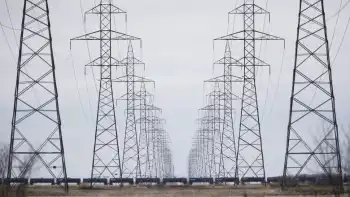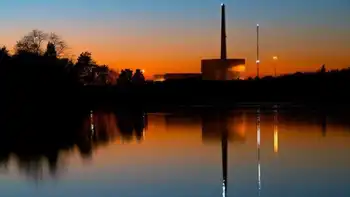Energy Department doles out stimulus grants
By United Press International
CSA Z463 Electrical Maintenance -
Our customized live online or in‑person group training can be delivered to your staff at your location.

- Live Online
- 6 hours Instructor-led
- Group Training Available
Approximately 23,000 U.S. cities, counties, territories and American Indian tribes, plus all 50 states, are eligible for money from the Energy Efficiency and Conservation Block Grant program, funded by the economic stimulus bill signed by President Barack Obama in February.
The administration hopes the program will deliver a double whammy, addressing both environmental concerns and plummeting markets.
"The block grants are a major investment in energy solutions that will strengthen America's economy and create jobs at the local level," Energy Secretary Steven Chu said. "The funding will be used for the cheapest, cleanest and most reliable energy technologies we have — energy efficiency and conservation — which can be deployed immediately."
The money hasn't gone out yet, though.
Eligible entities have a few months to put their applications together, explaining what they'll use the money for and proving it will go toward energy-saving projects, such as efficiency retrofits for residential and commercial buildings, energy audits, projects to capture greenhouse-gas emissions from landfills, transportation systems that conserve energy and others.
The applications are due May 26 for states and June 25 for all others.
"Each of the applications will be reviewed, and once the applications are approved, the money will go out," said Jen Stutsman, deputy press secretary at the Department of Energy. "Our goal is to get the money out the door as soon as possible."
The earliest that could happen is 60 days from now, Stutsman said.
With unemployment at a 25-year high, the money is badly needed nationwide, Vice President Joe Biden said when he announced the program at the end of March.
"These investments will save taxpayer dollars and create jobs in communities around the country," he said. "Local leaders will have the flexibility in how they put these resources to work — but we will hold them accountable for making the investments quickly and wisely to spur the local economy and cut energy use."
The Energy Department will ensure the funds are used well, Biden said, by requiring grant recipients to track and report data on their projects such as the number of jobs created or retained, energy saved, greenhouse-gas emissions reduced and the amount of renewable-energy capacity installed.
A number of smaller entities hope to benefit from the grants, including educational institutions like the Community College of Allegheny County, which has a number of clean-technology training programs. The Pennsylvania county where the school is located is eligible for $8 million in grants.
"A lot of (the money) is intended to go toward training, and as one of the largest workforce trainers in the area, we certainly hope to see some of that to help strengthen and expand our programs," David Hoovler, the college's director of public relations, told United Press International.
The college has a variety of programs aimed at giving students the skills they need to work in green jobs, including certification classes for solar-panel installation and maintenance.
The funds available vary widely by state, with California receiving a whopping $351.7 million and Wyoming getting only $12 million. The allocation is based largely on population but also takes into consideration energy usage. As a result, some states, like West Virginia, are eligible for less money than other states, including Idaho, that actually have smaller populations.
The money will jump-start economies in a number of ways, said Gil Sperling, program manager for the Energy Department's Weatherization and Intergovernmental Program, which administers the grant program.
"It will create demand for energy products, and higher demand will increase production and that will lower costs," Sperling told UPI.
There's one area of the economy, though, that stands to lose if the grants increase energy efficiency as planned.
"It will hurt utilities," said Charles Ebinger, director of the Energy Security Initiative at the Brookings Institution, a non-profit policy organization. "Utilities make their revenue by selling electricity, so if a customer of a utility suddenly gets a grant that helps them use less electricity, it means the utility sells less and makes less money."
To address this problem, some states, like California, have "decoupled" utilities, separating the companies' profits from the sale of electricity.
Despite the potentially negative impact on the utility sector, Ebinger said he thinks the efficiency grants will be good for the economy overall.
"Cities will have lower utility bills and will have more funds to put into social services," he told UPI. "It puts money in consumers' pockets that they can spend on other things."











